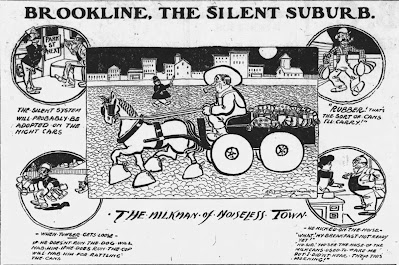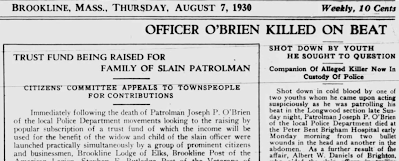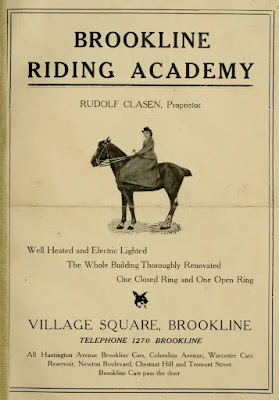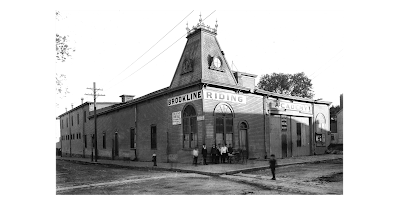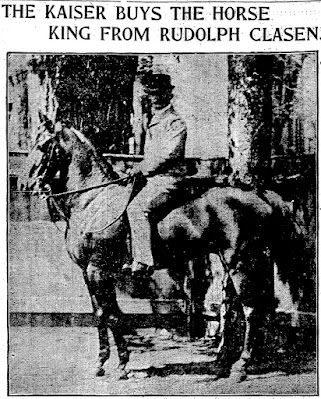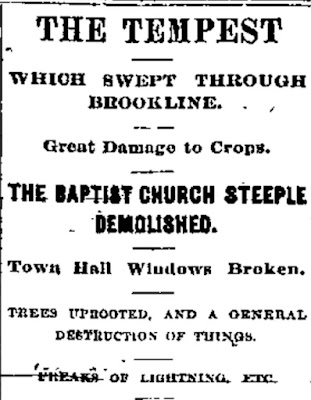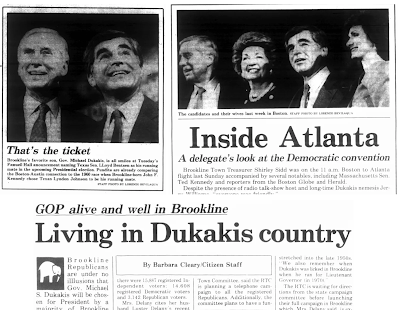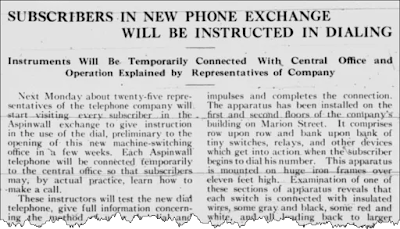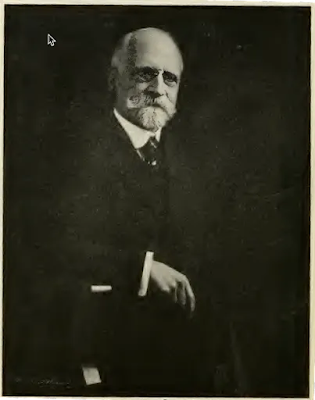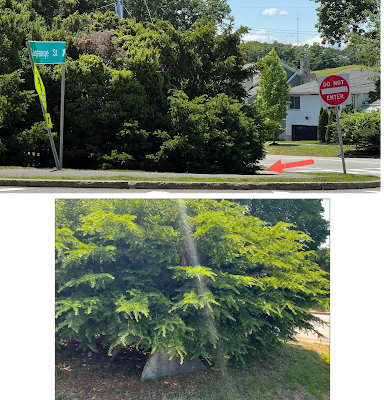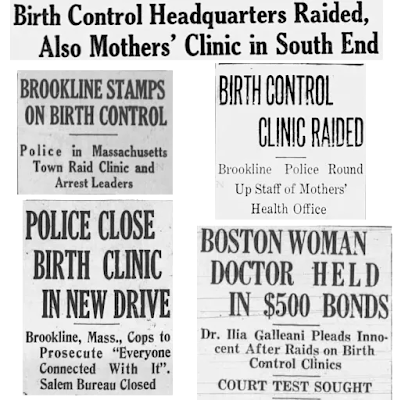 |
| August 1, 1937 |
August 1, 1916 - First woman police officer
August 3, 1930 - Murder of Officer O’Brien
August 2, 1937 - Birth control clinic raided
August 1, 1904
Got milk? Shhh.
to carefully inspect and, if necessary, alter his wagons with reference to preventing rattling and other loud noise, and also to instruct the drivers to drive slowly when near dwelling houses, to avoid cobblestone gutters, to handle the cans and bottles quietly, to refrain from shouting, and in all other ways to do their work without unnecessary noise.
The Boston Globe found all the commotion about noise fairly amusing. Their story ("Noise crusade begun by prominent men of Brookline. Milkmen requested not to disturb sleepers") ran on the front page of the August 5th edition with a lightly mocking cartoon ("Brookline, The Silent Suburb") at the top.
August 1, 1916
First woman police officer
Ida R. Parker, a Wellesley College graduate with experience in social work, was added to the Brookline police department in a new and experimental role designed to help young people, especially girls and young women, stay out of trouble without involving the courts.
Parker, whose appointment was made permanent in January, brought new attention to how police dealt with women and young girls, focusing on the preventive as opposed to the punitive and to the social problems at the root of many encounters with police and the courts.
 |
| Ida R. Parker, Boston Globe, January 10, 1917 |
She left the police force in 1920 -- another woman was appointed in her place - and had a long career in social work. She held positions at Massachusetts Memorial Hospital (now UMass Medical Center) and conducted research on topics including adoption. She died in 1972 at the age of 89.
August 3, 1930
Murder of Officer O’Brien
Brookline police officer Joseph O'Brien was shot three times on Ivy Street while questioning two men suspected of trying to steal cars in Boston and Brookline. He died the next day. He was the second Brookline officer killed in the line of duty. (The only other one was killed in 1904 while trying to apprehend a man who had murdered his wife.)
 |
| Dr. Ilia Galleani was arrested at the clinic in this building at 9 Vernon Street at the corner of Harvard Avenue |
"How sad that all we have worked for, has been suddenly smashed. I sincerely hope that it will be temporary for the sake of all these poor women who needed the advice so badly.The push of progressive work has never been easy. But let us hope that the higher courts will judge in our favor. It seems difficult to believe that they will not."
The case ended up in Norfolk County Superior Court where Galleani agreed, more than a year later, to plead guilty and was fined $100. The Birth Control League of Massachusetts issued a statement that read, in part:
"The former Brookline Mothers' Help Offices has been convicted of giving to sick mothers who cannot afford the services of a private physician the same medical assistance that is freely given in almost every other state and is widely approved by the medical profession.
The Mothers' Health Offices, of which Dr. Galleani was the physician in charge, was fulfilling a need which is met in other states, by hospitals and health agencies. The services of the health offices were at all times under the supervision of a highly competent physician and had the endorsement of many other doctors."
